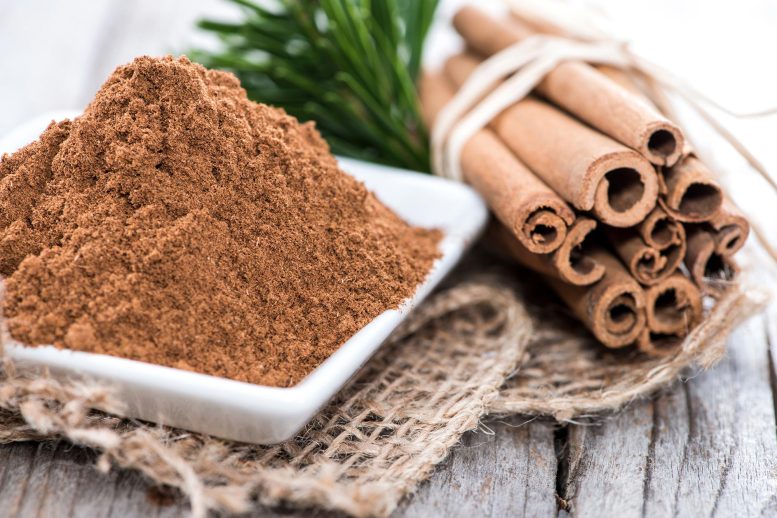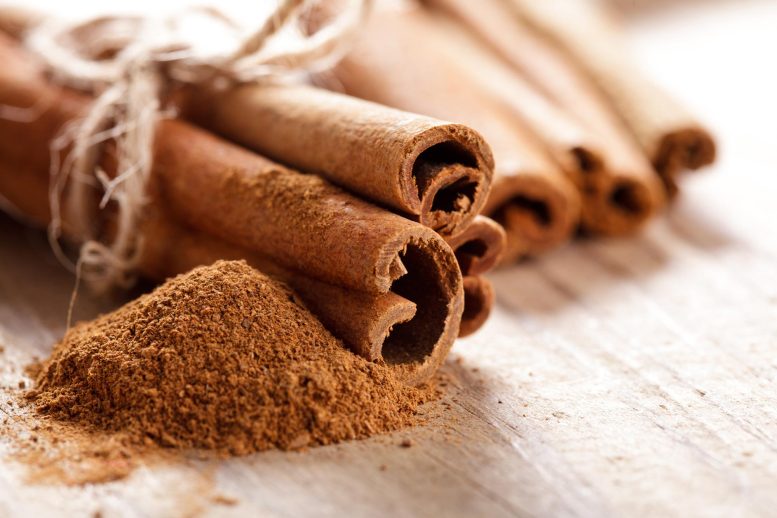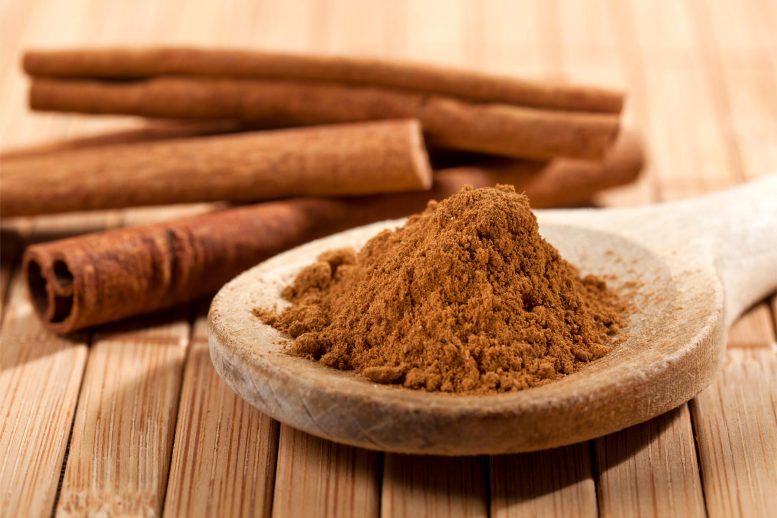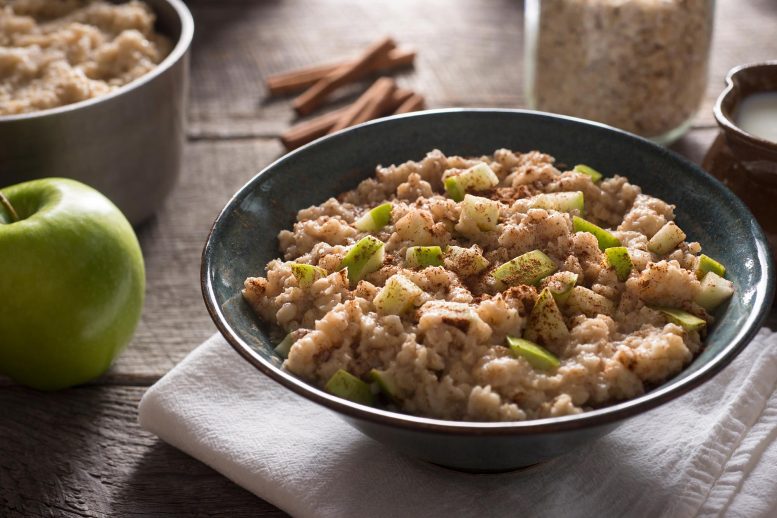
Cinnamon is a spice obtained from the inner bark of several tree species. It is commonly used in cooking and baking for its sweet and warm flavor, as well as for its health benefits.
Cinnamon is a spice that has been used for centuries in traditional medicine and cooking. It is derived from the bark of several trees in the Cinnamomum family and is known for its warm, sweet flavor. In addition to its culinary uses, cinnamon is also known for its numerous health benefits. You can even find cinnamon in supplement form as capsules, often with the active molecule cinnamaldehyde in a concentrated form. In this article, you’ll learn the major ways in which cinnamon can improve your health.
1. Boosts Heart Health
Cinnamon has been shown to have a positive effect on cardiovascular health. Studies have found that it can help to lower blood pressure, reduce cholesterol levels, and improve blood sugar control. One study found that consuming just 120 milligrams of cinnamon per day for 12 weeks resulted in a significant reduction in blood pressure.[1]
Cinnamon contains antioxidants that can help to protect the heart from oxidative stress, which is a major contributor to heart disease. By reducing oxidative stress, cinnamon can help to reduce inflammation in the arteries. In turn, this improves blood flow and reduces the risk of heart attack and stroke.

Cinnamon is a spice with a rich history and some interesting facts. For example, cinnamon has been used for centuries in traditional medicine to treat various ailments, and is still being studied for its potential health benefits today. Additionally, cinnamon was once more valuable than gold and was traded along the famous Silk Road. There are different types of cinnamon, with Ceylon cinnamon being considered the “true” cinnamon and Cassia cinnamon being the most commonly used type.
2. Helps Prevent and Manage Diabetes
Cinnamon has even been shown to reduce blood sugar in people with type 2 diabetes. According to a meta-analysis that synthesized the results of 10 studies, cinnamon in doses of 120 mg to 6 g per day effectively reduces fasting glucose levels in people with diabetes within 4 to 18 weeks.[2]
It works by increasing insulin sensitivity. Insulin is the hormone that regulates blood sugar levels. With greater insulin sensitivity, the body can use insulin more effectively. This could potentially help prevent or manage diabetes.
3. Fights Inflammation
Inflammation is a natural response of the body to injury or infection, but when it becomes chronic, it can lead to a host of health problems, including arthritis, heart disease, and cancer. Cinnamon contains compounds that have anti-inflammatory properties, which can help to reduce inflammation in the body. Studies have shown that cinnamon can reduce the production of inflammatory molecules and inhibit the activity of inflammatory enzymes.[3]
Cinnamon can also help to reduce inflammation in the gut, which is important for maintaining gut health. By reducing inflammation in the gut, cinnamon can help to improve digestion, reduce bloating and gas, and prevent leaky gut syndrome.

Cinnamon is a spice derived from the inner bark of trees belonging to the genus Cinnamomum. It is commonly used in cooking and baking for its distinct sweet and warm flavor, and is also used in traditional medicine for its potential health benefits.
4. Supports Weight Loss Efforts
Cinnamon can also help to support weight loss. By helping to regulate blood sugar levels, cinnamon can reduce cravings for sugary foods and help to prevent overeating. It can also boost your metabolism, which can help to burn more calories and promote weight loss. A meta-analysis that pooled results from 7 studies found that cinnamon supplementation reduces body weight and body mass index (BMI). It noted the results were more drastic in people who took more than 3 grams of cinnamon per day.[4]
5. Boosts Brain Function
Cinnamon has also been shown to have a positive effect on brain function. One study found that cinnamon can improve cognitive function, including memory and attention span.[5] Another study found that cinnamon can help to protect the brain against age-related decline by increasing the production of proteins that are important for brain health.[6]
Cinnamon can also help to improve mood by increasing the production of serotonin — a neurotransmitter that is important for regulating mood and preventing depression.

It is popular to sprinkle cinnamon on oatmeal. You can add apples too and have apple cinnamon oatmeal.
Supplementing with Cinnamon
Cinnamon is a delicious spice that offers numerous health benefits. Whether you sprinkle it on your oatmeal, add it to your coffee, or use it in your cooking, cinnamon is a great way to give your body a boost. From improving heart health to fighting inflammation, supporting weight loss, and boosting brain function, there are many reasons to make cinnamon a part of your daily routine. Some supplements contain concentrated forms of the active molecule in a spice or herb. If you’re taking a cinnamon supplement, be sure to take no more than the amount recommended on the product’s label.
Please note that it is important to consult with a healthcare professional before taking any new dietary supplements, including those that contain cinnamon. While cinnamon is generally considered safe when consumed in food amounts, high doses or long-term use of cinnamon supplements may have adverse effects, particularly in individuals with liver disease or those taking medications that interact with cinnamon. Consulting with a doctor can help determine whether cinnamon supplements are safe and appropriate for an individual’s specific health needs.
References:
- “The effect of cinnamon supplementation on liver enzymes in adults: A systematic review and meta-analysis of randomized controlled trials” by Parivash Shekarchizadeh-Esfahani, Fatemeh Heydarpour, Fatemeh Izadi and Cyrus Jalili, 24 February 2021, Complementary Therapies in Medicine.
DOI: 10.1016/j.ctim.2021.102699 - “Cinnamon Use in Type 2 Diabetes: An Updated Systematic Review and Meta-Analysis” by Robert W. Allen, Emmanuelle Schwartzman, William L. Baker, Craig I. Coleman and Olivia J. Phung, September 2013, The Annals of Family Medicine.
DOI: 10.1370/afm.1517 - “Anti-inflammatory effects of cinnamon extract and identification of active compounds influencing the TLR2 and TLR4 signaling pathways” by Anne Schink, Katerina Naumoska, Zoran Kitanovski, Christopher Johannes Kampf, Janine Fröhlich-Nowoisky, Eckhard Thines, Ulrich Pöschl, Detlef Schuppan and Kurt Lucas, 25 October 2018, Food & Function.
DOI: 10.1039/C8FO01286E - “Cinnamon, an effective anti-obesity agent: Evidence from an umbrella meta-analysis” by Majid Keramati, Vali Musazadeh, Mahsa Malekahmadi, Parmida Jamilian, Parsa Jamilian, Zohre Ghoreishi, Meysam Zarezadeh and Alireza Ostadrahimi, 1 April 2022, Journal of Food Biochemistry.
DOI: 10.1111/jfbc.14166 - “Cinnamon and cognitive function: a systematic review of preclinical and clinical studies” by Samaneh Nakhaee, Alireza Kooshki, Ali Hormozi, Aref Akbari, Omid Mehrpour
and Khadijeh Farrokhfall, 18 January 2023, Nutritional Neuroscience.
DOI: 10.1080/1028415X.2023.2166436 - “Cinnamon, a promising prospect towards Alzheimer’s disease” by Saeideh Momtaz, Shokoufeh Hassani, Fazlullah Khan, Mojtaba Ziaee and Mohammad Abdollahi, 16 December 2017, Pharmacological Research.
DOI: 10.1016/j.phrs.2017.12.011









Um, it’s all well cited, and there’s even a disclaimer. This is an excellent summary. That’s no fun, since I’ve nothing to criticize.
Oh wait, what’s pictured isn’t cinnamon, it’s cassia bark. True ceylon cinnamon is thinner with more layers like a phyllo pastry. It tastes similar, but using cassia bark regularly is potentially too blood-thinning, with higher coumarin levels, so consider real cinnamon if using it theraputically. Hah, nice try SciTechDaily, I win again!